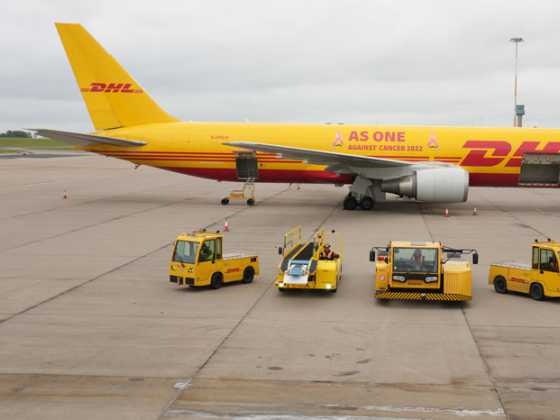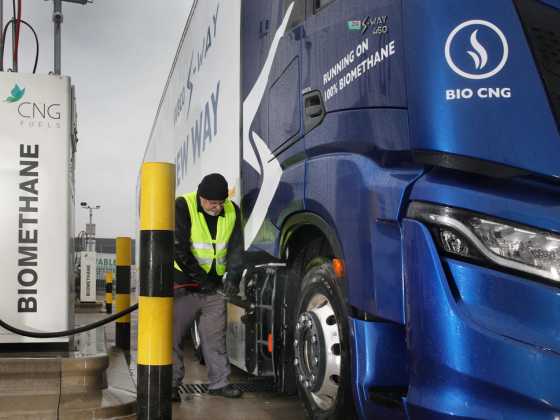Transforming the way people and goods move

New ways of travelling and transporting goods, such as car clubs, autonomous vehicles and cargo bikes for city centre deliveries, are believed to solve some of the most pressing urban challenges. We look at how the government hopes to transform transport and travel outlined in its Future of Mobility strategy
Transforming the way people and goods move, such as through car clubs, autonomous vehicles and cargo bikes for city centre deliveries, are believed to solve some of the most pressing urban challenges, namely congestion and poor air quality. It is also hoped to make the UK more productive and bring societal benefits too, such as opening up travel options for older people and those with disabilities.
The government’s recent ‘future of mobility: urban strategy’ examines this subject.
It says that new types of travel and new business models, enabled by data and connectivity, automation and electrification, are starting to transform how people and goods move. If the transition is well managed, it could help tackle urban challenges such as congestion and air pollution. It can also widen access to mobility for disabled people and older people.
Jesse Norman, Minister of State for Transport says in the foreword that “radical new technologies are emerging that within a generation will transform everyday journeys.”
The review explores regulations around new types of vehicles including e-scooters and e-cargo bike trailers, how sharing data can improve services by reducing congestion, and how journey planning and payment can be made more simple.
The strategy sets out how the government is planning to achieve these ambitions with nine key principles that will guide government decision-making going forward; ensuring that emerging transport technologies are safe, accessible and green.
The report says that much of the technology required for new travel modes, new business models, automation and electrification is available today and is already having an impact on people’s mobility choices.
With 80 per cent of people in the UK now using smartphones, funding will be put into ideas to find smoother payment systems, more up-to-date travel information and the use of innovative forms of transport. This is hoped to make travel in towns and cities more convenient, more reliable and cheaper.
The benefits of mobility
New mobility models could reduce dependency on car ownership, therefore removing car parks and allowing urban space to be used more efficiently. This could allow for more green space, with associated benefits including improved physical and mental health and mitigating the higher temperatures and air pollution of urban areas.
There is significant potential for new modes of transport to replace traditional vehicle miles in urban areas. This could alleviate congestion, reduce noise and emissions, and improve traffic flow. For example, trials of electric cargo bikes showed that they have the potential to increase road speeds in congested areas as well as reducing emissions, costs and delivery time when compared to van-based last mile delivery services. Drones could also take the place of vans for some types of urban deliveries.
The government also believes that there is strong economic benefit to new mobility solutions. Improving the flow of people and goods around the country can raise economic productivity and support the government’s Industrial Strategy. In addition, self-driving vehicles could free up travel time for work or leisure. The average driver in England currently spends 236 hours behind the wheel per year, equivalent to over six working weeks.
Achieving the ambitions
A review of the legislation will be fundamental to achieving the desired changes. The strategy outlines how it will look at how taxis and private hire vehicles are regulated, with laws dating back to the 1800s currently stifling innovation.
Traffic regulation and street design may also need to evolve to accommodate new vehicles and new ways of using roads.
The review will also consider if regulation around sharing transport data needs the change, as this is crucial for mobility as a service to work.
Supporting local areas with the changes is also key. The strategy says “it will continue and expand upon efforts to understand and address the challenges local areas face, strengthening their capacity to prepare for and shape the future of mobility”.
Money will continue to be pumped into trialling and researching innovative transport solutions.
Future Mobility Zones for example, are cities given funding to test a range of new mobility services, modes and models.
The West Midlands has been chosen as the UK’s first Future Mobility Area and will see money invested in new innovative new transport schemes to make journeys quicker, cheaper and cleaner.
Transport for West Midlands (TfWM) will work with companies to trial and demonstrate new modes of transport, services and technologies, like mobility as a service, car sharing, electric bikes and using data to bust congestion on our roads.
Mayor of the West Midlands, Andy Street said: “Technology is going to completely change the way people get around, and we’re pleased the West Midlands is at the forefront of this revolution.
“The West Midlands is already the beating heart of Britain’s self-driving vehicle testing, competing with Silicon Valley, Germany and China.
“As the UK’s first ever future mobility area we are already developing these new technologies to help people get around more quickly and easily, and to build the next billion-dollar company like Uber or Tesla right here in Birmingham, Binley or Brierley.”
Industry efforts
Commenting for the automotive industry, Mike Hawes, SMMT chief executive, said: “The automotive industry is responding to perhaps the most significant change since the invention of the car. Mobility as we know it is evolving, improving people’s day-to-day lives with implications for all of society. This strategy offers important guidance on the objectives and principles underpinning the future of mobility in towns and cities, while giving industry scope to invest and innovate, developing exciting new services.
“We look forward to working closely with government and local authorities to shape the strategy’s implementation, helping to position the UK as a global leader in future mobility.”
Future of Mobility Grand Challenge business champion and former board member of BMW, Ian Robertson said: “With a long history of transport innovation, a world-class research base and many established technology leaders, the UK is in prime position for a transport revolution.
“The government’s vision as set out in the ‘Future of mobility: urban strategy’ will ensure that going forward, all businesses within the transport industry create technology that is accessible to everyone, environmentally friendly and economically worthwhile. In doing so, the industry can ensure it harnesses its domestic expertise to profit from a growing market for cleaner, safer and more efficient transport.”
Cargo bikes
The government has published its response to the Last Mile call for evidence, outlining a range of measures to support cleaner and more sustainable last mile deliveries. These include increasing the uptake of e-cargo bikes and e-vans. In addition, working with the Energy Saving Trust, the government is also now inviting expressions of interest for £2 million of funding to support the uptake of e-cargo bikes.
Matthew Eastwood, head of transport at Energy Saving Trust commented: “The Department for Transport’s eCargo Bike Grant Fund will support the adoption of ecargo bikes by businesses in England. An ecargo bike has the potential to be faster through traffic than a van and offer much lower operating costs. They are a practical sustainable transport solution for urban deliveries, generating zero emissions therefore contributing to improved air quality.
“Successful applicants will access grant funding for up to 20 per cent of the cost of a new ecargo bike up to the value of £1,000 per bike and must sign up to an agreed code of practice.”






